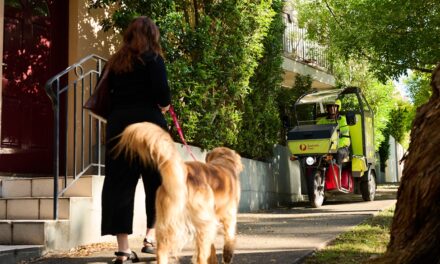
Post offices deliver bush banking
Siobahn Ryan THE 300-plus residents of Mt Larcom, northwest of Gladstone, yesterday became
the first of about 40,000 rural Australians to gain access to face-to-face
banking and electronic bill-paying at local post offices. Up to 101 towns nationwide are included in the federally funded $3 million
program to expand rural transaction centres. More than 20 years after the last bank left Mt Larcom, the residents yesterday
gained electronic access to 70 new financial institutions, Eftpos, Billpay and
other online services through the “giroPost” system. In doing so, it has moved into the frontline of a battle to win the hearts,
minds and votes of a rural Australia that has lost one in five of its major
bank branches in the past seven years. Nationwide, 40,000 jobs have been slashed across the banking industry, despite
rising bank fees and record profits. Mt Larcom resident George Armstrong said yesterday that he had been travelling
40 km into Gladstone for his banking since the town lost the last of its two
banks a decade ago. The bank manager had once been “part of the community”, Mr Armstrong said. “These days, I don’t even know mine.” Mr Armstrong said the withdrawals of branch services had hurt the town, which
over the years has lost a hospital, picture theatre, cafes and butcher shops
amid fading rural fortunes. “It certainly doesn’t help,” he said. “It’s a retrograde step for sure.” Federal Regional Services Minister Ian Macdonald acknowledged yesterday that
the winding back of services by some banks had been “inappropriate”. But he said Mt Larcom and 40,000 other rural Australians stood to gain services
“almost as good as” those in city branches through the new banking services
at Australia Post outlets. The eligible towns, including six in Queensland, will be offered equipment to
help them access 70 financial institutions and pay bills, ranging from council
rates to fishing licences, online. Another 700 towns could become eligible for the services in later funding
rounds. In the future, the system could also offer travellers’ cheques, concert
tickets, and health insurance refunds. But Opposition spokeswoman for regional services Sue Mackay said the offer was
“too little, too late”. She said the Coalition had botched the first phase of its five-year $70 million
program, establishing only 28 fully-fledged rural transaction centres instead
of the 70 promised by June last year. Senator Mackay also called on the Government to keep Australia Post, on which
the second phase of the program depends, in public hands. The rural transaction program was funded through the partial sale of Telstra.
Edition: First with the news; Page: 008; Section: NewsCOURIER MAIL, 15th August 2











